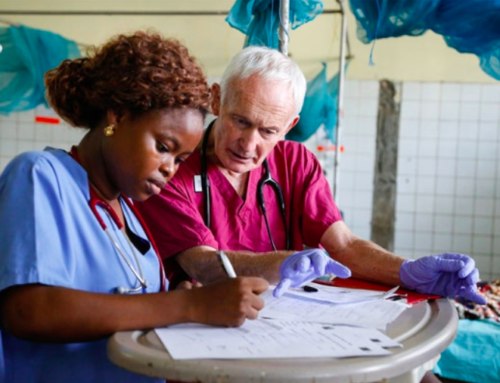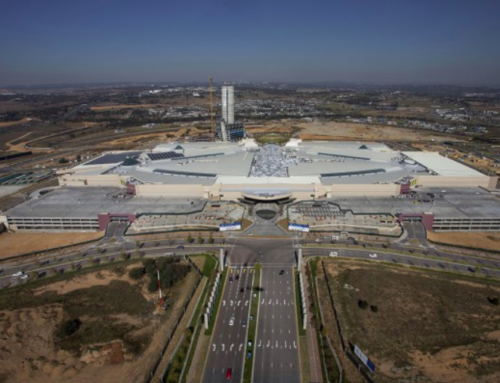Mediclinic Southern Africa digital media relations and engagement programme


Strategy consulting: Digital media relations and engagement programme for Mediclinic Southern Africa
PRISM AWARD 2013 CATEGORY WINNER: DIGITAL MEDIA RELATIONS
A company’s digital footprint refers to all the digital elements that create its online presence, including television, mobile platforms, websites and social media applications. The digital space allows for unparalleled interaction and engagement with large target audiences the world over. The prevalence of the use of social media not only by the public, but also by professionals in all spheres and industries, has rendered social media a vital tool in any public relations campaign.
Client profile
Mediclinic Southern Africa (MCSA) is a top-three South African private hospital group, part of the publically listed Mediclinic International group, the sixth largest private hospital group in the world. Mediclinic Southern Africa has 7 130 beds in 52 hospitals in South Africa and Namibia, providing acute care, specialist-orientated, multi-disciplinary hospital services and related service offerings.
The challenge at hand
In 2012, the Department of Health embarked on the development of a National Healthcare Insurance (NHI) plan for South Africa, initially a one-sided politicised approach that ignored the private hospital sector in the debate, and rather positioned them as the root of the problem. Mediclinic embarked on a comprehensive integrated public affairs communication strategy to enable an inclusive regulatory process and to communicate the correct private hospital perspective on NHI.
The nature of the debate on healthcare issues at the time was very fluid and required constant engagement and adjustment. As a result, Mediclinic had to equip itself to respond appropriately with factually correct and balanced information to address possible misperceptions that could arise through third-party public statements. Mediclinic realised the strategic value of using social media as a tool to build relationships with key influencers in this debate and to inform misled public opinion to enhance Mediclinic’s reputation and brand value.
Stone’s approach to meeting the need
Stone was appointed communication partner to Mediclinic to develop a digital campaign to influence stakeholders in the debate and manage Mediclinic’s digital reputation.
Digital media relations, as part of a broader social media strategy, presented a unique opportunity for Mediclinic to manage its reputation as a trusted South African private healthcare service provider. Through this medium, Mediclinic could demystify many of the misperceptions, specifically issues related to excessive pricing and super profits, and the sensible deployment of the NHI and the challenges faced to implement accessible healthcare for all South Africans.
Stone conducted in-depth research and developed a customised, company-specific social media strategy and assisted Mediclinic to launch a series of branded social media platforms.
Together with Mediclinic, Stone then embarked on the development of a comprehensive social media and digital media relations strategy with a series of strategic outcomes and objectives. The strategy employed the above platforms to influence, engage and inform critical stakeholders by providing well-researched, balanced information to contextualise and simplify key healthcare issues. This included leveraging opinion on crucial, relevant industry issues like the NHI, health reform and the pricing debate.
An ongoing consultative approach was deployed throughout the project to ensure that all engagement was informed by current public opinion and media exposure.
In the development of the integrated digital media relations strategy, Stone carefully mapped the target audiences and the appropriate communication interventions that they would require. The process included:
- Development of a proprietary industry and consumer blog, backed by supporting social media tools, to engage constructively with key, identified stakeholders.
- Identification of proactive and reactive content response on national healthcare issues, Mediclinic’s role as healthcare provider of excellence, and leader in the field of the Science of Care.
- Creation of platforms for interactive communication to address the need for information, to facilitate healthy discussion, to balance and put misperceptions into perspective, and ultimately contribute to the inclusivity of healthcare in South Africa.
- Significant research conducted in South Africa and internationally to understand the relevant issues and opinions from a national healthcare and private hospital perception.
- Compilation of a media list with digital footprints and twitter handles of appropriate health and financial journalists active on social media.
- Development of a reactive engagement strategy to allow the company to respond correctly to third party social media comments – independent of the tone thereof – and engage efficiently, timeously and correctly while staying within the company’s messaging framework.
- Investigation of the messages and negative comment that the Mediclinic brand could be exposed to on social media through a combination of social media scanning, using Radian 6 social media analysis, internal discussions on Yammer, as well as reviewing all digital comments and opinions Mediclinic was exposed to prior to the launch of the digital engagement campaign and social media platforms.
- The use of Yammer, an enterprise level social media platform to guide internal discussions and planned communication interventions to communicate the planning processes, invite participation from selected influencers, invite comment and discussion, and brainstorm ideas on the company’s social media engagement, aims, content strategies, risks and management.
Results achieved and value added for Mediclinic Southern Africa
Key audiences for addressing public questions, misperceptions and negative reputation were identified and targeted effectively:
- Media – influencing negative perceptions, and putting ill-guided views into perspective.
- General public – informing Joe Public by simplifying complex healthcare issues to gain brand trust
Both a proprietary industry and consumer blog and associated strategies were launched to communicate key messages around Mediclinic’s influence in the healthcare sector:
- The industry blog (thefutureofhealthcare.co.za) aimed to engage at all levels and on all platforms in the interest of stakeholders, providing well-researched, informed opinion and facts. Key topics included discussions on the value of and the price dynamics in the private healthcare sector, advancements in the world of healthcare, Mediclinic’s stance on healthcare reform and the NHI, as well as Mediclinic’s approach to resolving the nursing shortages in South Africa.
- The consumer blog (mediclinicinfohub.co.za) aimed to inform and educate consumers by sharing the expertise of an extensive team of affiliated doctors in a range of fields like cardiology, diabetes, neurology, lifestyle, women’s health, oncology, etc. This was further complemented with feeds of the discussions on the industry blog to inform and influence the public’s perception.
Twitter was used to engage with identified healthcare and financial journalists and push these role players to the blog.
Other social media tools, which had their own deployment strategies and policies (including YouTube, LinkedIn and Facebook) were integrated and overlapped with the campaign to further provide coverage to key messages.






